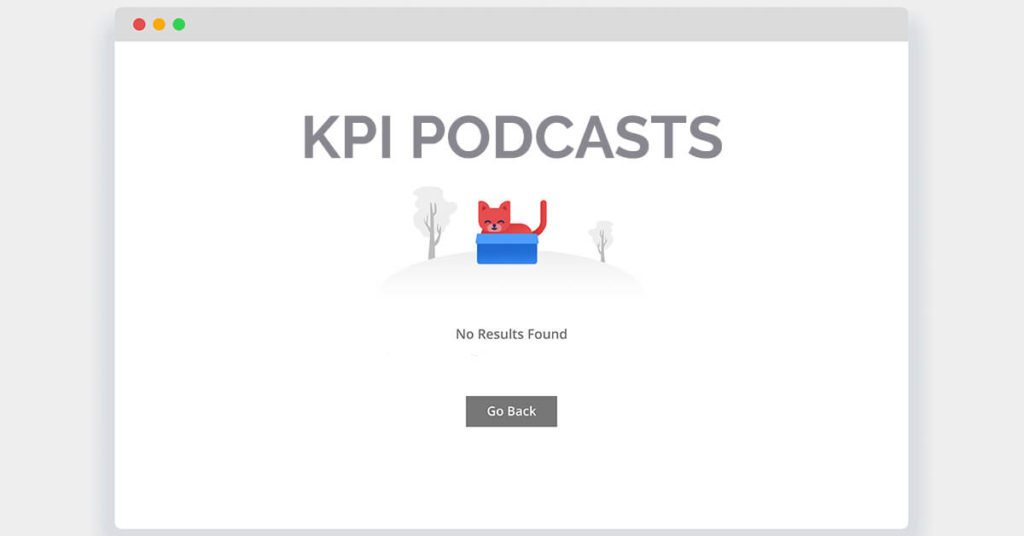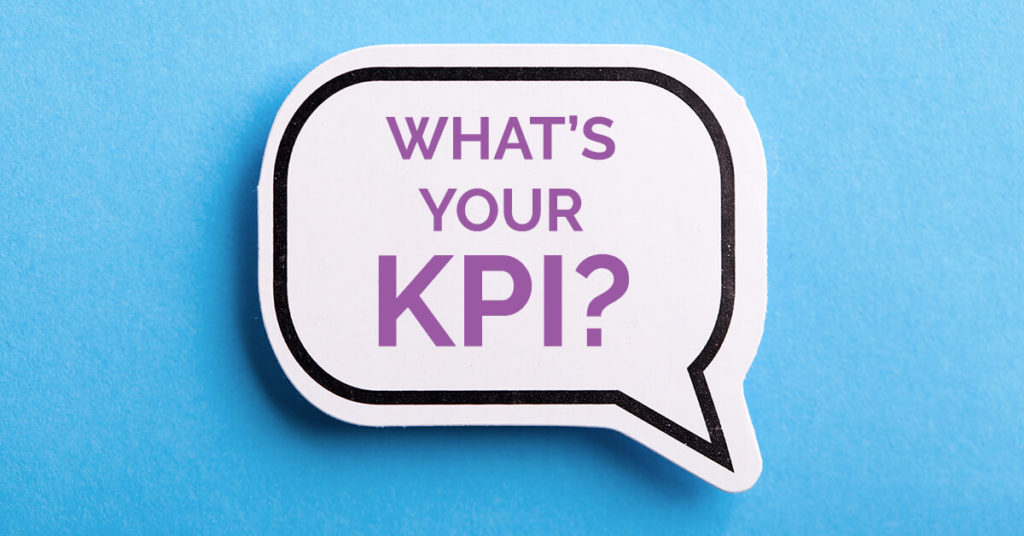
What’s Your KPI and How You Can Track It
Don’t try and find quality podcasts explaining KPIs.
Podcast search engines aren’t known for being the most dynamic or helpful. If you don’t have a keyword-stuffed in the title, it just won’t come up in results. There’s no doubt some really smart, great podcasters talked about KPIs - but good luck finding them.
In order to make a quality recommendation in this blog, I had to go back to ol’ faithful - Lynda.com and Brad Batesole.
What is a KPI? - Definition

I spent an entire Saturday listening to rubbish podcasts. One or two were close to getting my badge of honor, but I couldn’t do it. No one was really giving me a good explanation of what a KPI is and why they matter. I’m not oblivious to the definition, but someone out there might be. The goal is to give someone a nice bite size chunk of content to help them better understand digital marketing, web design, and in this case - building your business.
What does KPI Stand For?
KPI is an abbreviation for Key Performance Indicator. KPIs help businesses measure their progress, success, and failures for specific initiatives.
You might find yourself asking, is a KPI a standard metric, like cost per acquisition or churn rate?
No, KPI’s are not actual set metrics. They aren’t always numbers and they are not universal from business to business. A business can make their KPI be loyalty scores on a survey or how many widgets they make in an hour.
The key performance indicator is whatever the company wants to track that proves they are making movement towards a goal.
Creating a Marketing Plan and Finding My KPIs
If you were anything like me, you started servicing your customers and didn’t really think about KPIs. I had them, but they were tucked away in the back of my brain. It wasn’t until I went through some exercises online that I put them in writing and made them real.
Back before I even created my LLC, I was getting my digital marketing training via online learning. One instructor on Lynda.com that I binge-watched was Brad Batesole. He seemed to handle most of the digital and marketing classes. He opened my eyes to new tools, techniques, and concepts.

One of his trainings included a spreadsheet where you created a marketing strategy. I found my target audience and found the right marketing channels to reach them. This was a wonderful exercise, but I didn’t yet have a business so I tossed out the papers and moved on.
Back to present day - after my failed attempts with podcasts, I figured I would type KPI in Lynda’s search and see what I could find.
There he was - my friend Brad with a brand new Digital Marketing Course. Right in the middle, a video on KPIs. While I’m here, why not complete the course and do his exercises.
Finally, someone I can recommend with confidence.
Measuring Your KPIs
Brad gave me some great new tools and sheets to use for my business. He also reinforced a a lot of my thoughts on KPIs.
Your key performance indicator should be measurable. Not just measurable, but specific. If a client states that their KPI is having more users on their website month-over-month, I could equally report back a success if we had 1+ user or 1000+ users. A better KPI would be to increase website users by 10% month-over-month.

What’s also important is having your KPI tied to your marketing goals. We all love a vanity metric - how many followers we have on Twitter or how many loves we get in our latest Facebook post. But if these metrics don’t actually help you move towards your objectives, they aren’t effective KPIs.
If you know that each Twitter follower helps you make an extra sale per month, maybe that would work. Often you will see businesses creating effective KPIs by knowing their numbers. You can create effective KPIs by knowing:
- Customer Lifetime Value (CLV)
- Cost Per Acquisition
- Average Transaction Values
- Online Conversion Rates
It's important to explore your data and uncover what your customers are doing. You can create KPIs to help move them through your sales funnel (or their buyer's journey).
Using Analytics to Measure Your KPIs
If you have a website, you should have analtyics.
Does your brand has a social media page on Facebook? You have analytics.
Nearly every marketing channel you use has some form of analytics that you can track and create effective KPIs.

Since KPI's are unique to your business, there is not a one-size-fits-all solution for what tools or reports you should create. Even with that said, there are some very common KPIs you can track in Google Analytics.
- Time Spent on Page - how long are your customers viewing the pages on your website?
- Bounce Rate - are your users reading one page and leaving, or are they sticking around to view other sections of your site?
- New vs. Returning Visitors - are you building a loyal following?
- Conversion Rate - how many users are doing what you want them to do (fill out a form, click a link, etc...)?
- Acquisition - Where are your customers coming from (source)?
Granted, these don't have specific numbers tied to them and they all can be graded in a variety of ways. Bounce rate should be graded differently when you compare a blog vs. a product page.
But these are just numbers. It's not hard to tie a goal to bounce rate and make it a KPI. This still doesn't make it effective.
KPIs Should Be Influenced by Effort
Just because you track it doesn't mean it will work. I often set up several goals in Google Analytics for my clients - based on what is important and helps define their business success. My biggest focus is always this: what actions are you going to take to hit this goal?
If you want a 5% increase in website traffic (month-over-month), what are you going to do?
- Send out one new email blast per week
- Post three extra blog links on LinkedIn per month
- Write and publish two new blogs per week
- Repurpose old blogs and post on Facebook
Even if we hit the goal because there was a freak increase in traffic, if you didn't work towards hitting that goal, it wasn't effective.
I believe that you can win with digital marketing by putting in the work. Creating successful strategies require long-term thinking and constant effort. Tactics and hacks are great amplifiers, but those who put in the work will always win.
KPIs need to be tied to actions you can make to accomplish your goal. Everyone in your organization can be held accountable and can celebrate when you hit your goal.
What is Your KPI?
You might have to sit down and think about what metric or goal you are really pushing for. Maybe you already know and want to fine tune it.

Are you tracking these results with your analytics? If you are keeping a spreadsheet or using a CRM, you might be missing some important data. Users often start their journey on your website. Linking your website and social media data to your internal systems can help you understand your entire customer funnel.
That phone call or email is not the entry point for your customer. Wouldn't it be nice to see (and track) what pages they viewed and where they found you?
Recommendation for KPIs, Digital Marketing, and Analytics
There is so much to uncover and talk about when it comes to setting up your Key Performance Indicators. I've been advancing my skillsets for years by watching videos on Lynda.com. Instead of suggesting a podcast, book, or blog - I recommend signing up for a subscription to LinkedIn Learning (formerly Lynda) and go through some of the exercises I've taken advantage of over the years.
Digital Marketing Suggestions for Beginners
- Digital Marketing Foundations with Brad Batesole
- Google Analytics Essential Training with Corey Koberg
- Building an Integrated Online Marketing Plan with Matt Balley
These courses did wonders for my understanding and execution. They might take a bit longer than my normal 15-minute recommended podcast, but they will also provide you with a greater reward.
If you want to sign up for LinkedIn Learning (Lynda), use your LinkedIn account and follow the prompts.
This is not an affiliate program, just a recommendation because I absolutely love their product.
Enjoy.




